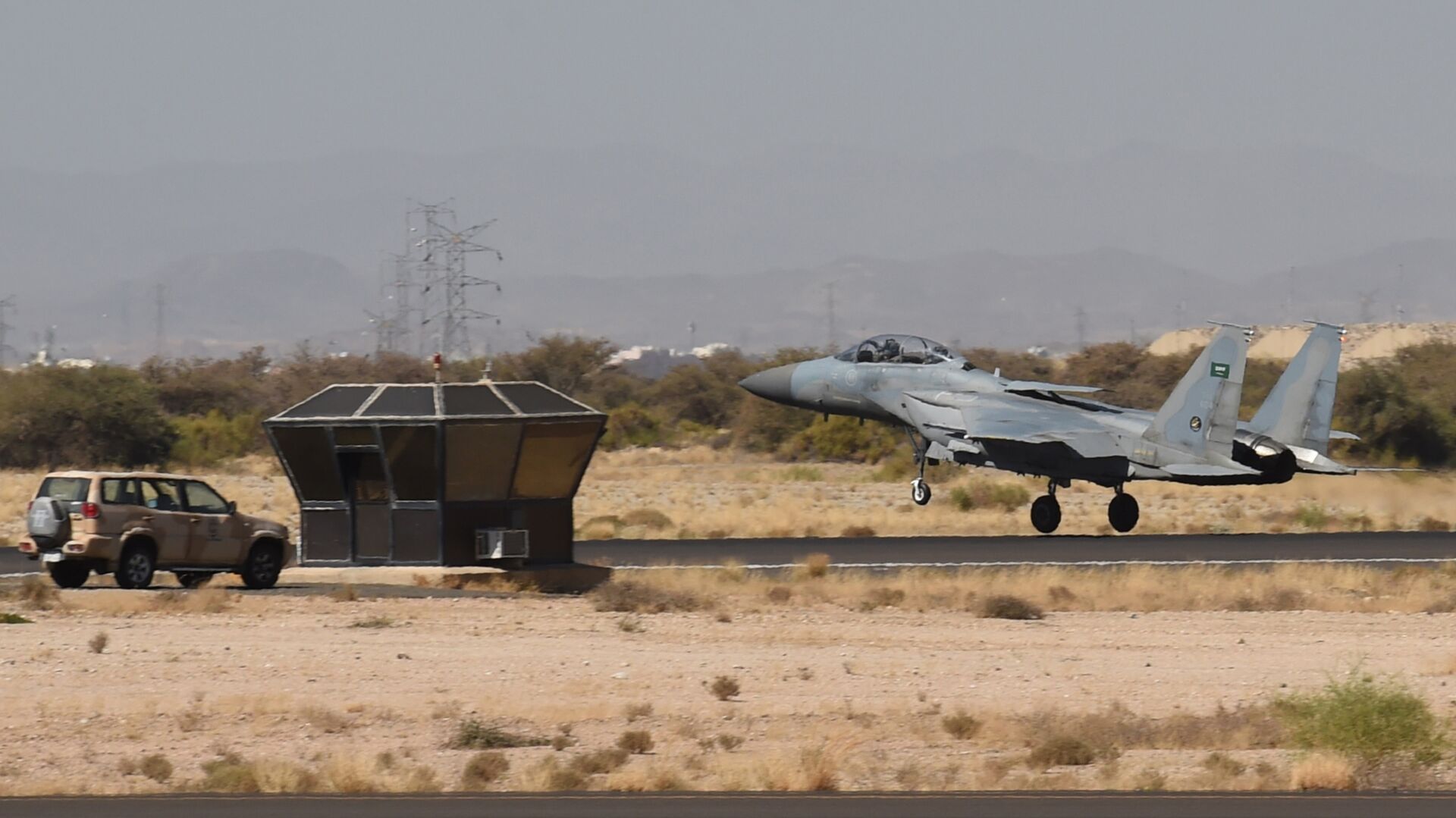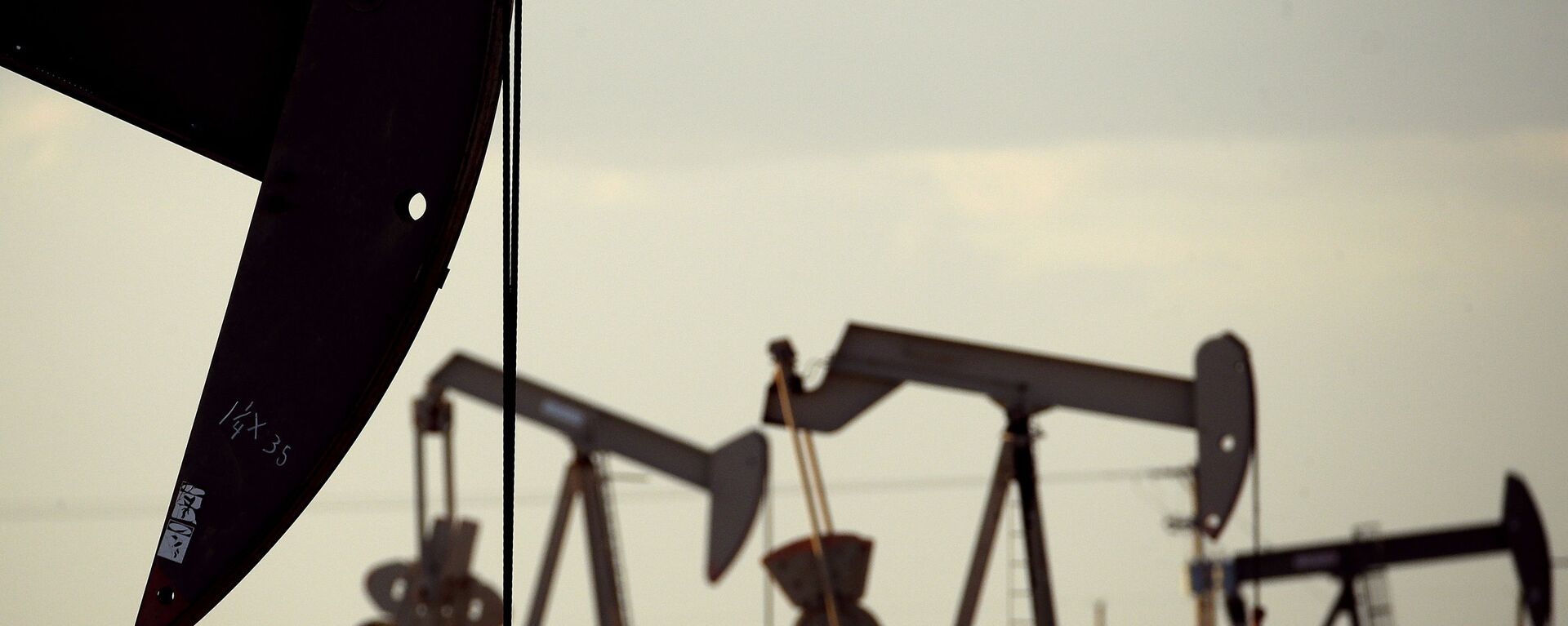US Arms Ultimatum to Saudi Arabia Unlikely to Be Matched by Action

© AFP 2023 / FAYEZ NURELDINE
Subscribe
MOSCOW (Sputnik) - Saudi Arabia pays no attention to hostile rhetoric by US Democrats, who vowed to haul military cooperation with the kingdom, because the US defense industry is unlikely to allow a complete suspension of such cooperation, international experts told Sputnik.
Last week, OPEC+ unanimously agreed to decrease oil production by two million barrels per day starting in November in response to uncertainty in global energy markets. Democrats in the US Congress have issued a fresh ultimatum to Saudi Arabia, giving the kingdom weeks to reverse the OPEC+ decision and roll back oil production or face a potential one-year freeze on all arms sales.
"Despite the heated rhetoric by members of the party likely to suffer significant losses in the midterm elections, Saudi Arabia is not only aware that the US defense industry will not allow for a complete detachment but has been hosting various Democratic party-level private parties and investors for conferences and economic discussion throughout the entire political crisis," a Middle East and North Africa (MENA) expert, national security lawyer and geopolitical analyst, Irina Tsukerman, told Sputnik.
The expert underscored that some cooling in the relationship between the two allies took place under the administration of former US President Barack Obama. Riyadh had felt discord back then and was trying to offset its defense needs by a closer alliance with China, according to Tsukerman.
Bilateral cooperation between Riyadh and Beijing has been on the upswing in recent years including in the defense sphere. Saudi Arabia is set to host the first China-Arab Summit in December 2022. China, which wants to deepen regional cooperation, is ready to leverage its technical expertise in infrastructure, arms procurement, oil exploration and space research.
Yousuf Alabarda, a Turkish political expert and a representative of M5 Strategy Journal, in turn, told Sputnik in an interview that the kingdom wouldn't be able to withdraw from its traditional alliance with Washington, being so eager to maintain its influence in the MENA region.
Alabarda recalled the July 15, 2016, coup in Turkey, when a faction of the Turkish military launched a coordinated action to topple incumbent President President Recep Tayyip Erdogan's government, alleging that the coup was widely supported by the US special forces in attempt to divert Ankara's course towards multifaceted foreign policy, providing for closer ties with China and Russia.
"Turkey has always had strong relations with the United States, especially in terms of security. However, for the last 20 years Turkey was doing a lot in order to diversify its relations — working on ties with the EU, China, and Russia. It developed a very skillful defense industry. The United States flooded Turkey with agents, they supported the coup, the Russian ambassador was killed by the US agents as well. For that reason, Saudi Arabia likely will not be given chance to come off US dependency in arms and security," the expert said.
Tsukerman, in turn, emphasized that political distrust, accumulated in the recent years, would be the hardest hurdle to overcome, citing US internal political crisis as the main problem.
"The US first needs to address its own internal issues, and that will take time. However, if the US manages to resolve the destructive ideological infiltration that has taken over its soft power institutions, it will be able to put most of its foreign affair crises to rest," the expert elaborated.
Biden is facing considerable pressure to mach his ultimatum against the kingdom with certain actions, especially, after his fellow Democrats continued to compete in verbal threats against the monarchy, Tsukerman explained.
Robert Menendez, the Democratic chair of the Senate's foreign relations committee, went as far in his threats to Saudi Arabia as suggesting in an interview on MSNBC on Wednesday that the kingdom had little choice but to reconsider its OPEC+ decision if it wanted to maintain its security against regional foes.
"Given that the Democrats are now in recess, Menendez's rhetoric is hardly taken seriously in the Kingdom, and if Democrats lose both Houses in November, his objections will not carry much weight. In reality, none of these threats are about Ukraine, because there are plenty of ways to get Saudi Arabia on board with sanctions without utilizing threats [...] Moreover, Menendez is fully aware that Saudi Arabia is neither looking to undermine the US nor to strengthen Russia but watches out for its own best interests," Tsukerman said.
According to the analyst, Saudi Arabia would not abandon its relationship with the US for the benefit of Russia's economy. The US under Biden is refusing to address vital Saudi concerns such as relegating the Houthis back to the Foreign Terrorist Organizations where they were listed under Trump or putting pressure on Iran.
"Renewed threats to the region by Houthis are indeed creating market uncertainty, which is driving Saudi Arabia's economic concerns. In the event Iran becomes a nuclear power and expands its aggression and in the event Houthis resume attacks on ARAMCO, Saudi Arabia is not currently counting on the US to come to the immediate rescue and seeks to protect its energy resources," Tsukerman said.
According to the experts, the gas prices' spike before the midterm elections in the United States will not be helpful to the chances of the Democratic party to secure places in the Senate. However, according to Tsukerman, none of this is in any way dependent on the action taken by OPEC+, as the US as one of the three top energy producers in the world could easily take care of this issue at any time by taking appropriate economic measures, such as returning to energy production, revitalizing the gas pipeline projects, removing or lowering gas taxes, and otherwise moving forward with its own economic and energy policies and interests.
"The American people's dissatisfaction does not merely stem from the fact of higher gas prices as from the overall mismanagement... The American people can deal with difficulties and have proven to be resilient after terrorist attacks, hurricanes, financial crises, and various disasters, but what they will not tolerate is a government they can't trust to watch out for their best interests," Tsukerman concluded.



